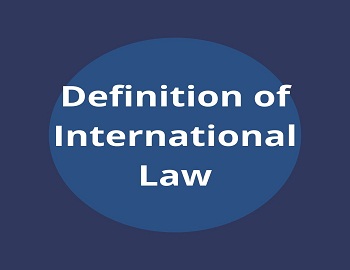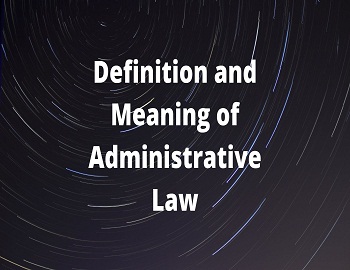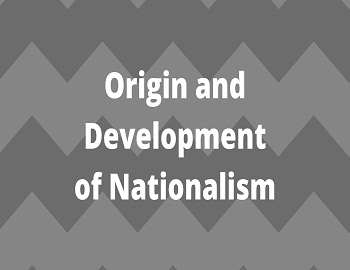Definition of International Law:
In fact, international law is the most important factor to preserve order and preventing the abuse of power in the international arena. Before discussing the effectiveness of international law as a check on the exercise of power, it will be worthwhile to note some definitions of international law that eminent writers have put forward.
According to Wheaton, “International Law, as understood among civilised nations, may be defined as consisting of rules of conduct which reason deduces as consonant to justice, from the nature of the society existing among independent nations, with such definitions and modifications as may be established by general consent”.
Sir Henry Maine defines it as, “a complex system, composed of various ingredients. It consists of general principles of right and justice, equally suited to the conduct of individuals in a state of national equity and to the relations and conduct of nations; of a collection of usages, customs and opinions, the growth of civilisation and commerce; and a code of positive law”.
According to Hall, “International Law consists in certain rules of conduct which modern civilised states regard as binding on them in their relations with one another with a force comparable in nature and degree to that binding conscientious person to obey the laws of his country, and which they also regarded as being enforceable by appropriate means in case of infringement”.
According to Oppenheim, “International Law is the name for the body of customary and conventional rules which are considered legally binding by civilised states in their intercourse with each other”.
According to Hughes, “International Law is the body of principles and rules which civilised states consider as binding upon them in their mutual relations. It rests upon the consent of foreign states”.
According to Fenwick, “International Law may be defined in broad terms as the body of general principles and specific rules which are binding upon the members of the international community in their mutual relations”.
According to Starke, “International Law may be defined as that body of law which is composed for its greater part of the principles and rules of conduct which states feel themselves bound to observe and therefore do commonly observe in their relations with each other”.
Lord Russel of Killowen defines international law as “the aggregate of the rules to which the nations have agreed to confirm in their conduct towards one another”.
Lord Birkenhead says that international law consists of rules acknowledged by the general body of civilized independent states to be binding upon them in their mutual relations. It consists of those rules which govern sovereign states in their relations and conduct towards each other”.
According to Sir Cecil Hurst, international law is “the aggregate of the rules which determine the rights which one state is entitled to claim on behalf of itself or its nationals against another state”.
A good working definition, however, is given by Lawrence. According to him, international law may be defined “as the rules which determine the conduct of the general body of civilised states in their mutual dealings”.









Comments (No)